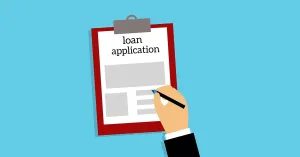Many lenders who are in the business of payday loans use the PDF financial file converters from MoneyThumb to help them make quicker and more informed lending decisions before they extend a payday loan to a borrower. Today on the Rules of Thumb blog from MoneyThumb we are going to explain exactly what payday loans are and how they work.
A payday loan is a short-term loan that can help you cover immediate cash needs until you get your next paycheck. These small-dollar loans usually are due within two weeks—or close to your next payday. Payday loans function differently than personal and other consumer loans. Depending on where you live, you can get a payday loan online or through a physical branch with a payday lender. Different states have different laws surrounding payday loans, limiting how much you can borrow or how much the lender can charge in interest and fees. Some states prohibit payday loans altogether.
Once you're approved for a payday loan, you may receive cash or a check, or have the money deposited into your bank account. You'll then need to pay back the loan in full plus the finance charge by its due date, which is typically within 14 days or by your next paycheck.
Payday loans come with a finance charge, which is typically based on your loan amount. Because payday loans have such short repayment terms, these costs translate to a steep APR. Despite the high costs, The Economist estimates that roughly 2.5 million American households take out payday loans each year. There are a few reasons for this popularity. One is that many people who resort to payday loans don't have other financing options. They may have poor credit or no income, which can prevent them from getting a personal loan with better terms.
Another reason may be a lack of knowledge about or fear of alternatives. For example, some people may not be comfortable asking family members or friends for assistance. And while alternatives to payday loans exist, they're not always easy to find. Many people resort to payday loans because they're easy to get. In fact, in 2015, there were more payday lender stores in 36 states than McDonald's locations in all 50 states, according to the Consumer Financial Protection Bureau (CFPB).
Payday lenders have few requirements for approval. Most don't run a credit check or even require that the borrower has the means to repay the loan. All you typically need is the identification, a bank account in relatively good standing and a steady paycheck.
How Much Can I Borrow with a Payday Loan?
The average payday loan is $350 on a two-week term, according to the CFPB. But payday loans can range from $50 to $1,000, depending on your state's laws. Currently, 32 states allow payday lending with a capped maximum loan amount. Maine, Utah, Wisconsin, and Wyoming do not have a cap. Delaware, Idaho, and Illinois have the highest cap amount at $1,000, while California and Montana have the lowest at $300.
Some states, including Nevada and New Mexico, also limit each payday loan to 25% of the borrower's monthly income. For the 32 states that do permit payday lending, the cost of the loan, fees and the maximum loan amount are capped.
What Are the Costs of a Payday Loan?
The costs associated with payday loans are set by state laws with fees ranging from $10 to $30 for every $100 borrowed. A two-week payday loan usually costs $15 per $100.
For example, let's say you borrow $100 for a two-week payday loan and your lender is charging you a $15 fee for every $100 borrowed. That is a simple interest rate of 15%. But since you have to repay the loan in two weeks, that 15% finance charge equates to an APR of almost 400% because the loan length is only 14 days. On a two-week loan, the daily interest cost is $1.07.
How Do I Repay a Payday Loan?
You're generally required to repay a payday loan with a single payment by your next payday. Because lenders have varying repayment terms, make sure to ask for the specific due date or check for the date in the agreement.
Depending on the lender, you may have a few options to pay off your debt:
- A postdated check when you apply
- A check on your next payday
- Online through the lender's website
- Direct debit from your bank account
- Another form of credit
If you don't repay the loan when it is due, the lender can electronically withdraw money from your account.
Unfortunately, many payday loan borrowers can't repay the debt by the due date. In fact, the CFPB found that 20% of payday borrowers default on their loans, and more than 80% of payday loans taken out by borrowers were rolled over or reborrowed within 30 days.
As you can easily tell from the information we have provided, due to the high-interest rate a payday loan should always be the last alternative. However, when money is tight and you can't get a conventional loan, especially now, right after Christmas when some people are in a financial bind, a payday loan can truly be a lifesaver.





















Add comment